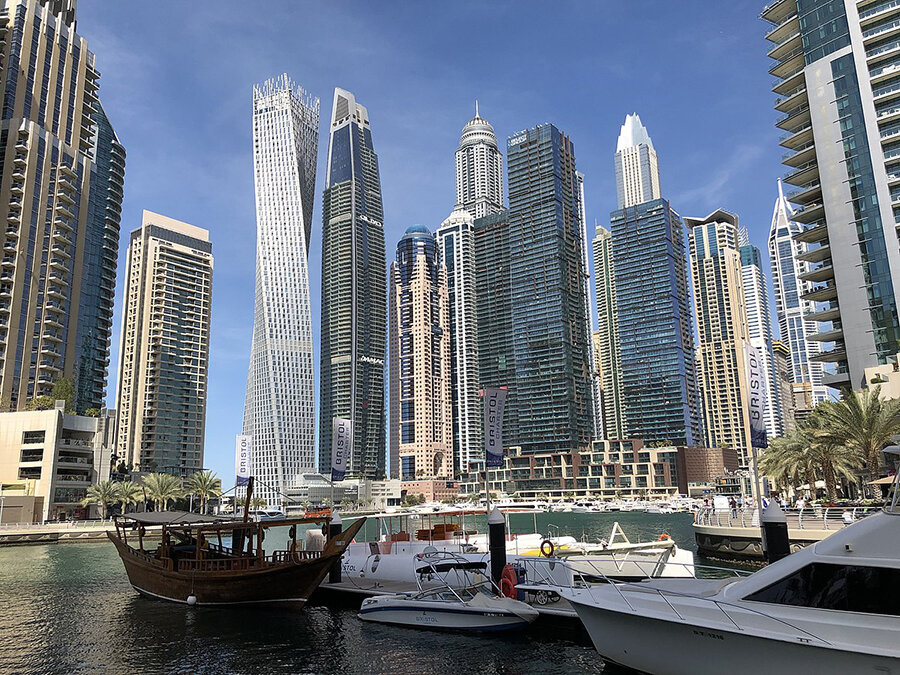Вusiness / Real Estate / Investments / Analytics / Reviews / News / United Arab Emirates / Real Estate UAE 07.06.2025
Dubai's Real Estate Market and Saudi Megaprojects Face Double Pressure from Trump Tariffs and Oil Price Collapse

The Gulf's economic stability is under threat. A combination of Donald Trump's newly imposed tariffs and oil prices plunging to a three-year low ($65 per barrel) poses serious risks to Dubai's booming property sector and Saudi Arabia's Vision 2030 megaprojects, according to Bloomberg.
Oil Shock: Saudi Budget Under Pressure
The sharp drop in oil prices is a direct blow to the Saudi budget. Goldman Sachs estimates the kingdom’s deficit may reach $67 billion in 2025. This puts pressure on Crown Prince Mohammed bin Salman to scale back or delay parts of Vision 2030 and seek external borrowing. Reuters reports that the government is actively reassessing its spending priorities.
Dubai at a Crossroads: Growth Peaks, But Risks Mount
Dubai’s property prices surged 70% in four years, driven by high-earning financial workers. However, the market is now showing signs of slowdown. Fitch Ratings warns that property prices may drop by double digits in 2025–2026. Trump's trade policies and global market sell-offs have added further pressure.
Gulf Funds Step In as Global Liquidity Tightens
As global financing becomes scarce, Gulf sovereign wealth funds are becoming critical liquidity sources. Brookfield Asset Management already holds $13 billion in regional assets and plans to raise an additional $2 billion. Investors see the Gulf as a safe haven amid international market volatility.
IPO Boom Continues Despite Global Uncertainty
While Western markets delay IPOs, Gulf countries push forward. Moody’s expects Middle East GDP to grow 2.9% in 2025, creating fertile ground for public listings—even as U.S. tariffs cause indirect pressure via demand shocks and investor hesitation.
Hedge Funds & Mega Deals: Dubai and Abu Dhabi on the Rise
Investment giants like Carlyle Group and KKR are expanding in the Gulf. Dubai and Abu Dhabi are becoming global investment nodes, benefiting from modern infrastructure, favorable tax regimes, and rising appeal among high-net-worth individuals.
Growing U.S. Ties and Big Tech Confidence
UAE’s Mubadala fund is acquiring U.S. gas assets, while Tesla is expanding in Saudi Arabia—signs of deepening economic ties. These moves boost Gulf reputations as reliable, tech-forward investment hubs.
Tax Havens and Wealth Migration from London
High taxes and cost of living in the UK are prompting an exodus of wealthy residents to Dubai and Abu Dhabi. Over 11,000 people have left central London boroughs in two years. The Gulf offers no-income-tax lifestyles with comparable public services.
Legacy Planning Challenges
The UAE is encouraging wealthy families to set up family offices to avoid inheritance disputes. Without legal structures, billions in assets risk becoming frozen or entangled in litigation—highlighted by the case of billionaire Majid Al-Futtaim.
Future Strategy: Resilience Over Reaction
The Gulf is striving not just to adapt to global pressure but to lead. Infrastructure, investment, and regulation reforms aim to position the region as a central node in global capital flows. Yet long-term success depends on internal reforms, governance upgrades, and social balance.








